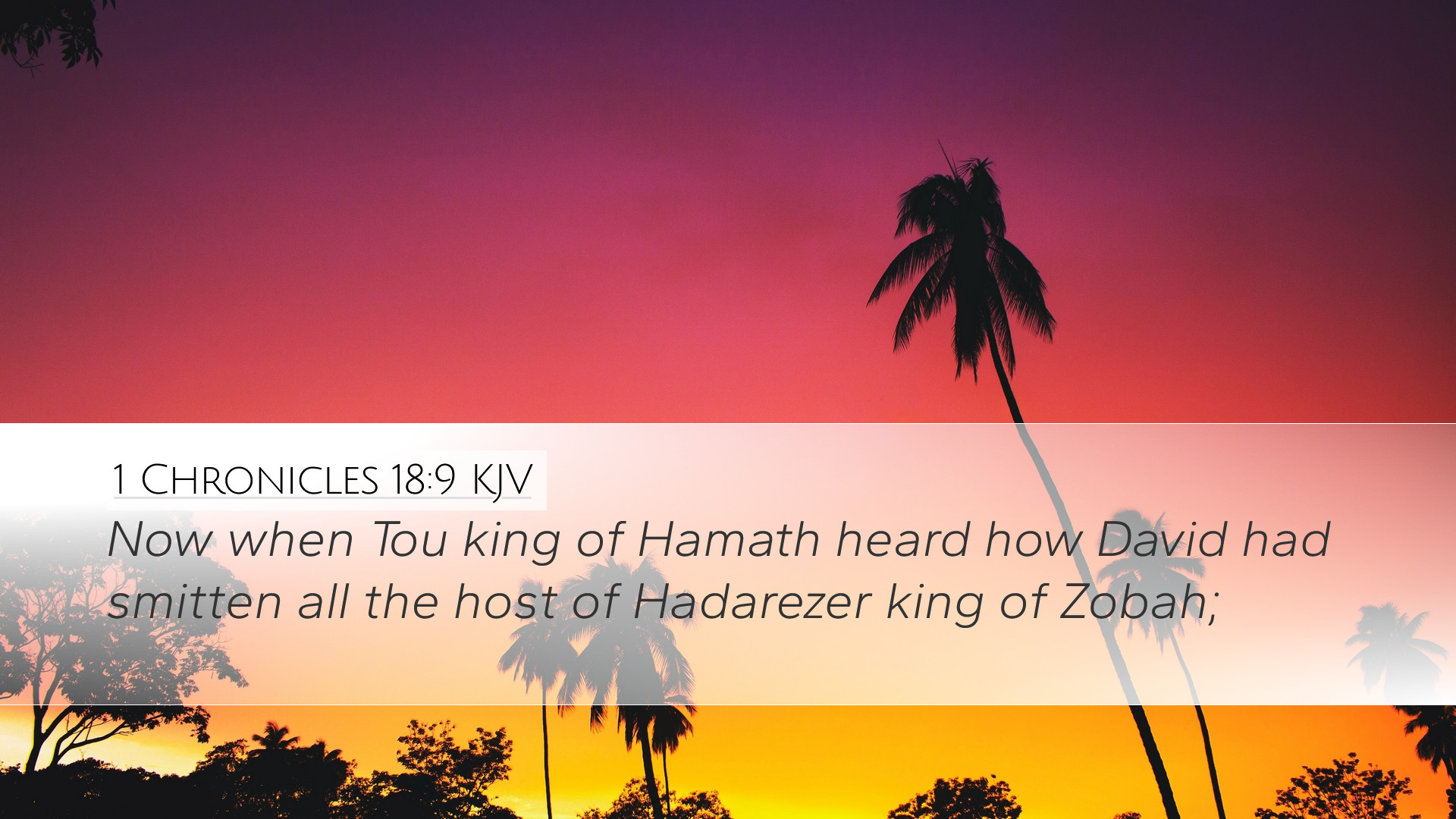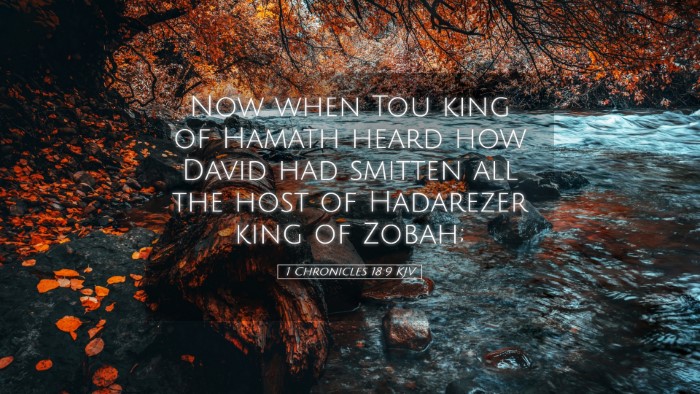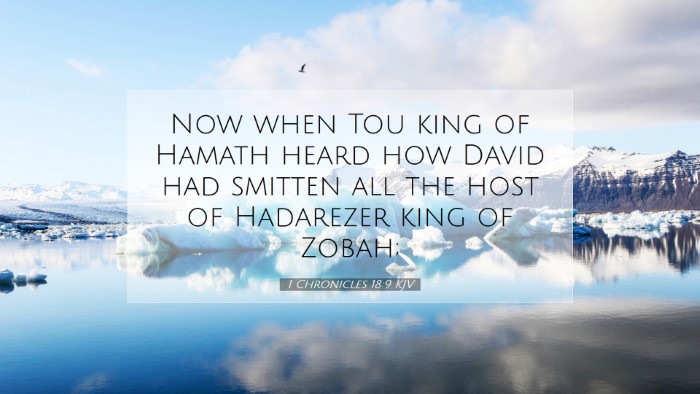Commentary on 1 Chronicles 18:9
Verse Reference: 1 Chronicles 18:9 (KJV) - "Now when Tou king of Hamath heard how David had smitten all the host of Hadadezer, king of Zobah;"
Introduction
This verse marks a significant moment in the military history of King David. David, having established his dominance over several neighboring nations, attracts the attention of other kings. The mention of Tou, king of Hamath, signals the geopolitical changes in the region and underscores God's providence in Israel's expansion.
Contextual Background
The narrative of 1 Chronicles occurs in a context rich with David's conquests. After unifying Israel and capturing Jerusalem, David's military campaigns against surrounding nations solidify his reign. Tou's reaction indicates the fear and respect that David instilled in his contemporaries.
Insights from Commentators
-
Matthew Henry:
Henry emphasizes the providential hand of God in David's victories, arguing that David’s successes were not merely military achievements but manifestations of divine favor. The mention of Tou illustrates the ripple effect of David's power; the news of Hadadezer’s defeat would send shockwaves across neighboring territories, prompting others to reevaluate their stance towards Israel.
-
Albert Barnes:
Barnes provides a detailed historical context by exploring the geographical implications of the event. He notes that Hamath, located north of Zobah, was a significant kingdom. The defeat of Hadadezer, who had been a formidable opponent, signaled a shift in power dynamics. Barnes suggests that Hadadezer’s defeat would lead to an alliance of interests among surrounding kings, striving to maintain a balance of power against Israel.
-
Adam Clarke:
Clarke notes that Tou’s response to David's military campaign could reflect both fear and a desire for diplomacy. His actions indicate an awareness of the political climate and an inclination towards peace rather than hostility. Clarke points out that this moment foreshadows the broader theme of David's reign—his ability to unite diverse nations under a single banner, often through peaceful agreements rather than continuous conflict.
Theological Implications
This verse invites deeper reflection on God's sovereignty in shaping nations and guiding leaders. Here, we see the theme of divine empowerment; David's victories were not solely his own but part of a larger divine narrative. The response of neighboring kings illustrates the idea of reverence and the recognition of God's power as demonstrated through His chosen king.
Practical Applications
-
Leadership and Influence:
David's role as a leader demonstrates the importance of godly leadership that instills both fear and respect. Modern leaders in church and society can learn to lead with integrity, ensuring that their actions reflect divine principles, thus becoming instruments of peace and justice.
-
The Importance of Reputation:
The verse illustrates that a leader's reputation can precede them. This calls for contemporary leaders to act with moral clarity, understanding that their decisions resonate further than immediate contexts. A godly reputation can pave the way for fruitful alliances and positive relationships.
-
Seeking Divine Approval:
Pastors and theologians are encouraged to remember that true success is not marked by worldly achievements but by fidelity to God’s call. David’s victories were a testimony to God's presence and power; leaders should prioritize their relationship with God over external success.
Conclusion
1 Chronicles 18:9 succinctly captures a pivotal moment in David’s reign and exemplifies the themes of divine sovereignty, leadership, and the interplay of fear and respect among nations. As pastors, students, and theologians reflect on this verse, they are reminded of the broader narrative of God's kingdom and the role of godly leaders in navigating the complexities of life and leadership.


